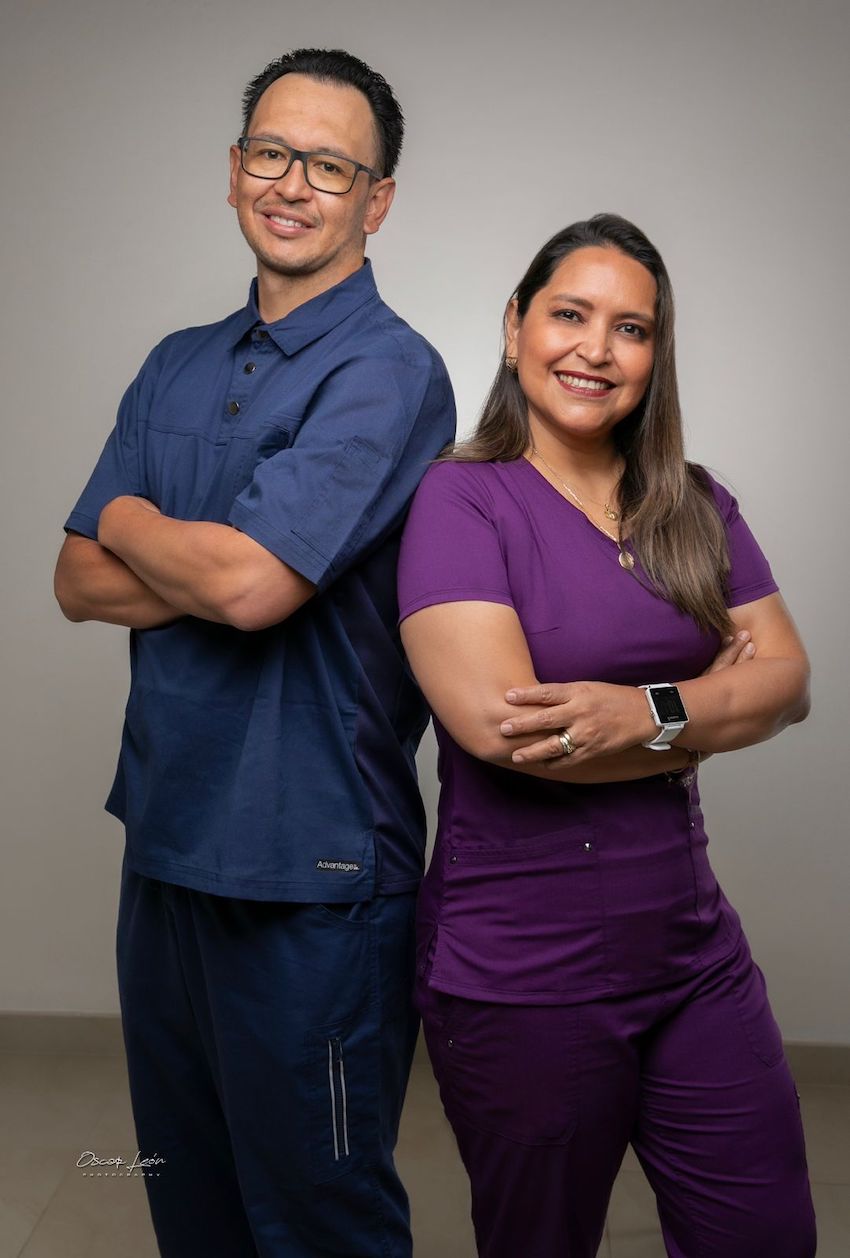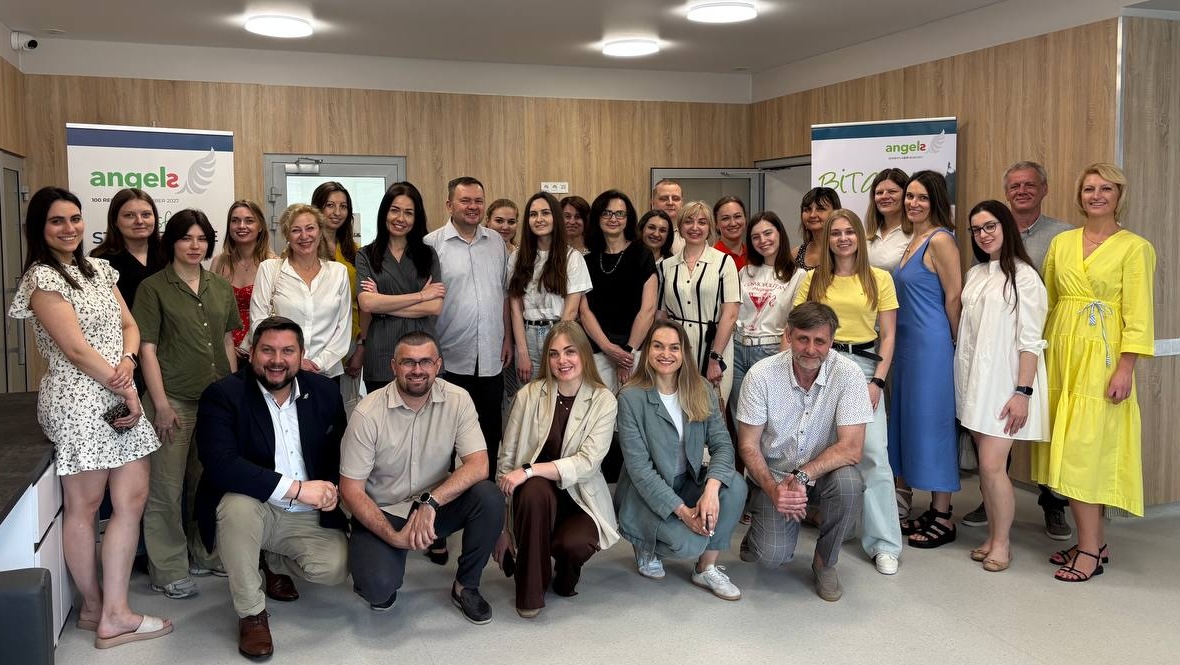
El pasado diciembre se iluminó una chispa en Ecuador, cuando el Hospital General IESS Ambato recibió el primer premio Angels del país por su excelencia en la atención del ictus. En un plazo de seis meses, esa chispa se convirtió en un fuego de fuego, ya que se lanzó una campaña para no menos de 30 hospitales de todo el país en centros preparados para el ictus para 2023.
Esta extraordinaria historia se puede contar de varias formas, incluida una hoja de cálculo adornada con todos los colores del arcoíris en los que cada color representa un viaje propuesto por un hospital diferente para tratar a cada paciente con ictus con la mejor atención disponible. Este arcoíris reside en el ordenador portátil del Angels Lead Sol Plamenatz, cuya tarea es lanzar una campaña ambiciosa establecida a través de un acuerdo firmado por el director de la oficina de vicepresencia del país, Alfred Borrero, en marzo. La campaña se denomina “Actúa Con Velocidad” en referencia a la importancia de la velocidad en el tratamiento del ictus agudo, pero sirve igualmente bien para describir la tarea que se está realizando. Para cumplir con la fecha límite del vicepresidente, Sol y su equipo tendrán que actuar con rapidez para garantizar que cada hospital alcance su objetivo en los 45 días asignados.
Pero todas las historias extraordinarias tratan sobre personas extraordinarias, por lo que vamos a presentarle la formidable colaboración de Paulina López y Manuel Jaramillo, dos médicos de urgencias del Hospital General de Ambato, donde una búsqueda de siete años para proporcionar atención de primera clase a pacientes con ictus isquémico culminó en un premio Angels Platinum de la WSO en 2021.
Ambato no es la ciudad más importante de Ecuador y el Hospital de Ambato es un hospital de nivel 2; en otras palabras, no entre aquellos clasificados para proporcionar atención especializada y compleja. Pero, por su gran ventaja, es la sede clínica de la Dra. Paulina López, cuya propia campaña para mejorar el tratamiento del ictus comenzó hace siete años.
Crecida en el mundo de la medicina (su madre era médica) y atraída por su aspecto humano, la Dra. López eligió su especialidad cuando se dio cuenta de que el servicio de urgencias estaba donde estaba la acción.
En 2015, después de perder a su abuelo por un ictus, comenzó a solicitar al Ministerio de Salud ecuatoriano datos sobre la eficacia y la seguridad de la trombólisis para el tratamiento del ictus hiperagudo.
En los varios años que se tardó en que el tratamiento fuera sancionado en Ecuador, el Dr. López tomó medidas para garantizar que el Hospital Ambato estaría listo para atenderle en ese momento. Ahora que la Dra. Jaramillo, la otra mitad de la asociación galardonada, quería estar segura de que una vez que la luz se volviera verde, Ambato tendría un equipo de ictus y un protocolo de ictus ya en marcha, y que el personal de enfermería y los residentes del servicio de urgencias sabrían exactamente qué hacer.
El Dr. Jaramillo había elegido la medicina porque soñaba con salvar vidas y, en su tercer año en la facultad de medicina, se dio cuenta de que la unidad de urgencias era donde tales sueños se hacían realidad. Ese sueño ganó aún más valor durante su primera trombólisis porque el paciente al que se le trasladó a través de las puertas de la unidad de urgencias fue alguien que reconoció. Él dice:
El paciente era el tío de mi mujer, por lo que la emoción era doble cuando, después de recibir la medicación, recuperó su capacidad para hablar y la movilidad en el lado derecho. Para un médico, la emoción de presenciar la recuperación del paciente era espectacular, pero ver la alegría de mi mujer elevó la mía a un nivel extraordinario”.
La primera trombólisis del Hospital General de Ambato tuvo lugar con 27 de junio de 2018. Al año siguiente, la Iniciativa Angels había llegado a Ecuador e introdujo a este hospital en el registro de mejora de la calidad de la atención del ictus, RES-Q.
El Dr. López dice que era exactamente lo que necesitaban. “En ese momento sentimos que no había nadie en el país que pudiera decirnos si lo hicimos bien o si nuestro protocolo era bueno. Pero una vez que empezamos a introducir nuestros datos en RES-Q podríamos hacer un seguimiento de nuestro rendimiento y descubrir qué hacer para mejorar”.
La COVID golpeó a Ecuador fuerte y rápidamente al año siguiente, pero a finales de 2021 el equipo de ictus del Hospital General de Ambato logró una mediana de 42 minutos de tiempo desde la llegada hasta el tratamiento y se clasificó para el premio que ahora parece estar preparado para cambiar la atención del ictus en todo el país.
El objetivo de 30 hospitales preparados para el ictus incluye aproximadamente el mismo número de hospitales públicos que ofrecen atención médica gratuita y los que gestiona el Instituto de la Seguridad Social (IESS) para sus miembros. La participación de ambos sistemas en la misma campaña ya es uno de sus éxitos iniciales.
El proceso en cada hospital comienza con una reunión de lanzamiento en la que Sol presenta la Iniciativa Angels, los principales criterios para la preparación para el ictus y el calendario para lograrlo. Se nombra campeón del ictus de quien el equipo de Actúa Con Velocidad obtendrá la historia del hospital y el protocolo de ictus existente. La formación comienza a continuación e incluye la realización obligatoria de cursos de certificación en la Academia Angels, seguidos de la revisión del protocolo y una simulación de la circuito del ictus para determinar si se necesita más intervención.
El protocolo desarrollado en el hospital Ambato se ha convertido en el modelo para todos los hospitales ecuatorianos y los Drs. López y Jaramillo se turnan para desplazarse a los hospitales identificados por su estado de preparado para el ictus para ayudarles a revisar su circuito del ictus.
“Se trata de “aprender a aprender a aprender a aprender”, dice el Dr. López sobre el proceso de conseguir hospitales más grandes en ciudades más importantes para cambiar la forma en que hacen las cosas. Es una empresa que requiere una buena cantidad de diplomacia y tacto, pero sin embargo la hace “realmente feliz”. Creo que estoy haciendo algo pequeño para cambiar el mundo”.
El Dr. Jaramillo llama a este uno de los momentos más importantes de su carrera profesional. “No solo porque se trata de un proyecto nacional que cambiará la vida de muchos pacientes, sino también por la oportunidad de compartir la experiencia de mi hospital con los demás y formar parte de la historia”.
Es un deseo de cambio lo que impulsa a estos dos médicos, y la oportunidad de demostrar que la excelencia no es proporcional al tamaño o a la tecnología de vanguardia. Para que la llama siga ardiendo primero y solo tenga que encontrar el fuego dentro, la voluntad de ayudar a los demás y un sueño para salvar vidas.



